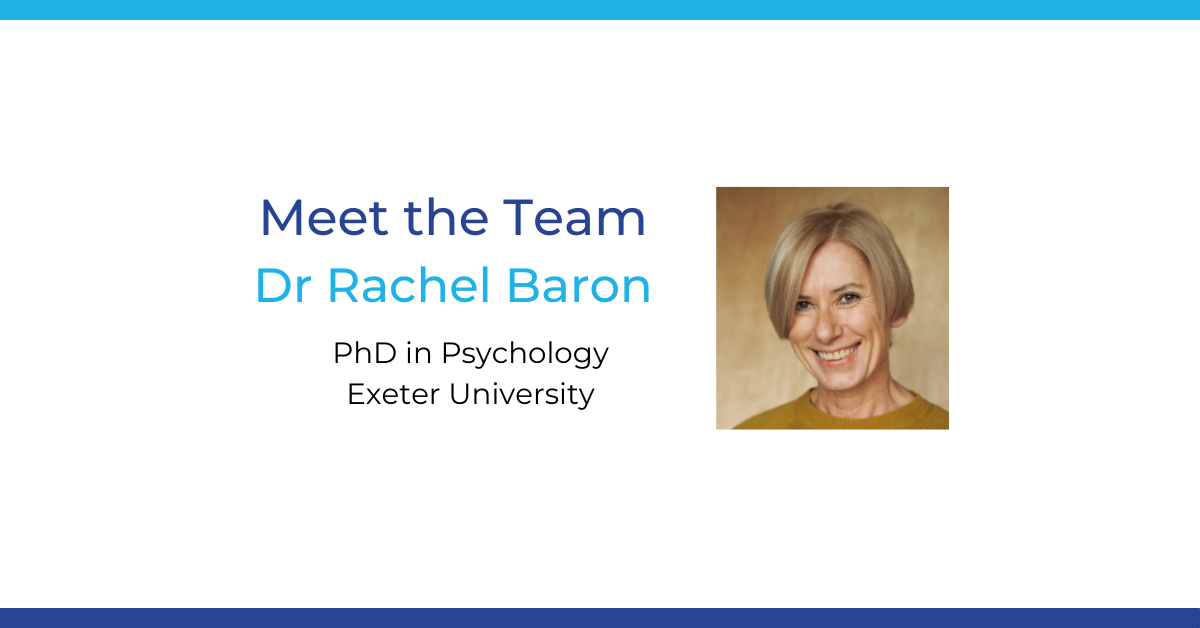
Learning more about the specialists who actually edit your manuscripts will help boost your confidence in a successful outcome. With that in mind we’re pleased to launch “Meet the Team”, where our hard-working, gifted editing team will share more about their backgrounds as well as thoughts on editing and academic writing.
In our first interview in the series our Co-Chief editor, Dr Rachel Baron, tells us about her experience, views and suggestions for authors.
Could you tell us a little more about your background?
My career has switched between editing and academia. I started out in book publishing, then spent 10 years studying Psychology at Exeter University in the UK. While studying for my PhD, I started editing for Armstrong-Hilton (as AsiaEdit was then named). Although I really enjoyed the work, I had to take a break once I took a position as Psychology Lecturer, again at Exeter University, due to the demands of the job. About 10 years ago, I decided to take a career break and started editing again. I was lucky to find that Armstrong-Hilton were looking for editors at the time. I found that my experience in academia had really enhanced my editing skills, and in time I progressed to Senior Editor, then Assistant Chief Editor, and now Co-Chief Editor.
How long have you worked in the academic editing industry? Why are you interested in this line of work?
It’s 20 years since I first started, and 10 years since it’s became my main career. I think the most important thing for me is the satisfaction I get from helping researchers get their work published. It’s only by chance that English has become the language of academia, which sets non-native English speakers at a disadvantage in such a fiercely competitive environment. Good research needs to be disseminated to as wide an audience as possible, and I’m glad if my small contribution makes the publication process a little easier for our clients. I also love language and my brain never stops editing, no matter what I’m reading, so at least by working in this job I put it to good use!
When editing, does it help to have specific knowledge of the field, or is a good knowledge of English sufficient?
Obviously a good knowledge of English is essential. The primary focus of our editing is to ensure that all papers are written to a high standard and contain no grammatical or spelling errors. However, there is no doubt that having field-specific knowledge is a great asset. English usage can vary enormously from one field to another, and of course each field uses specific terms that can seem strange to someone unfamiliar with the area. Sometimes it can be hard to follow the meaning of a sentence, and a knowledge of the underlying concepts can really help to express the ideas more clearly.
Do you have any suggestions for non-native English authors to enhance their chances of successful publication?
My first recommendation, of course, is to hire an English editor! However, one of the things that often strikes me when trying to edit highly complex and difficult to follow papers is that authors often make it more difficult by writing long and complex sentences that are difficult to disentangle. My advice is to keep it simple. The aim of scientific writing is to communicate ideas as clearly and accurately as possible, and far from indicating a lack of sophistication, concise, clearly written sentences can express a powerful message. I think journal editors, reviewers and readers all appreciate such writing because they can focus on the content, rather than on trying to decipher the meaning.
We will be speaking with another member of our editing team in the next issue. Do keep an eye out for it!
Meanwhile if you are looking for a professional editing service to improve your chances of publication success, check out our academic editing service which is trusted by many leading academics!
Check out AsiaEdit’s professional research grant proposal editing service.
Read more about our training services covering all aspects of academic writing tailored for local institutions.
More resources on research grant proposal writing: On-demand Webinars
Preparing an effective research proposal – Your guide to successful funding application
Preparing an effective research proposal – Your guide to successful funding application (Part 2)
您的日程安排,我們最關切 AsiaEdit 採用個性化的編修方法。
亞洲專業語言有限公司台灣分公司
110 台北市信義區基隆路二段15號10樓
9:00am – 6:00pm
+886 2 7705 3216
